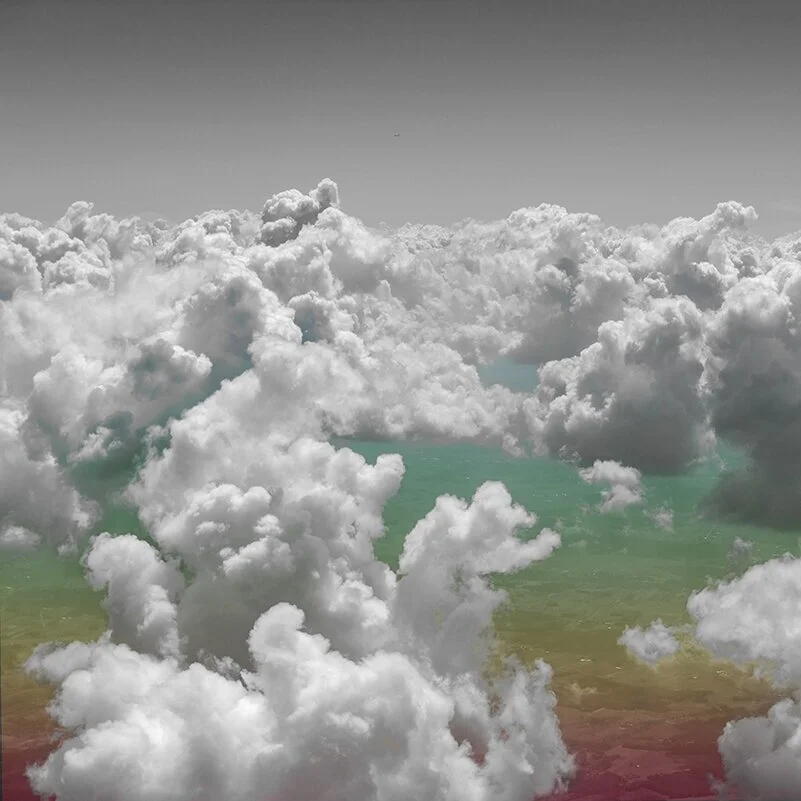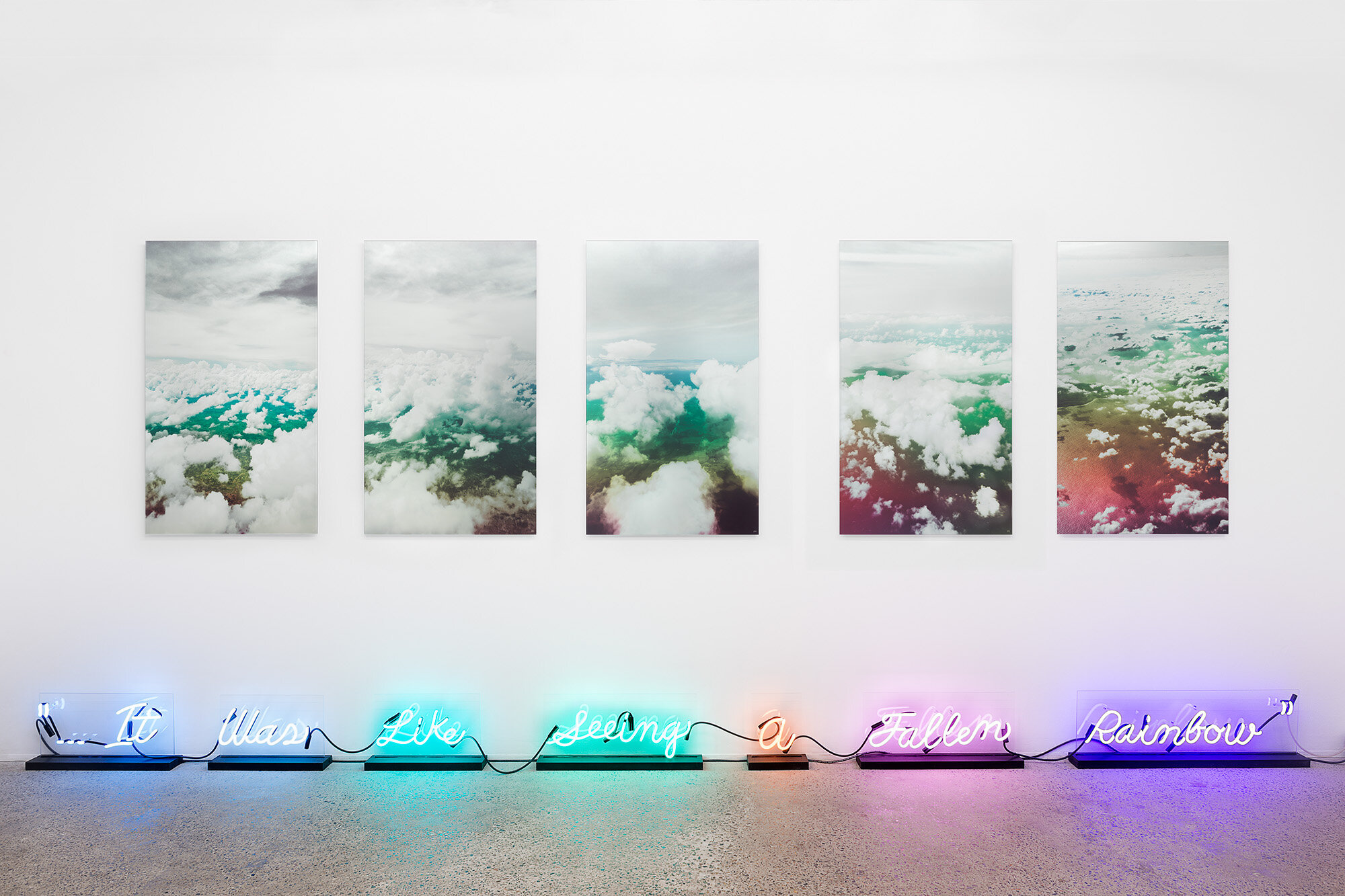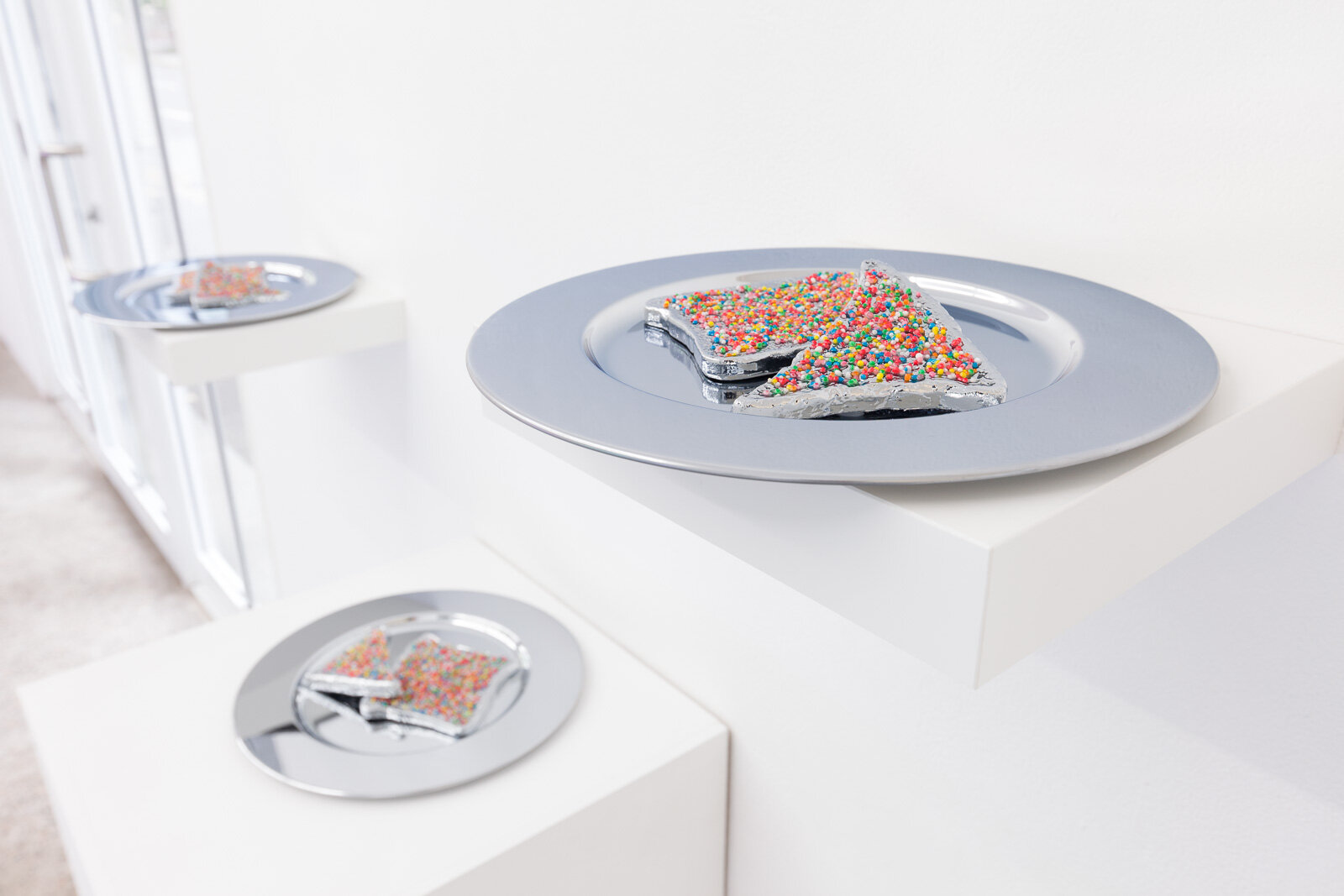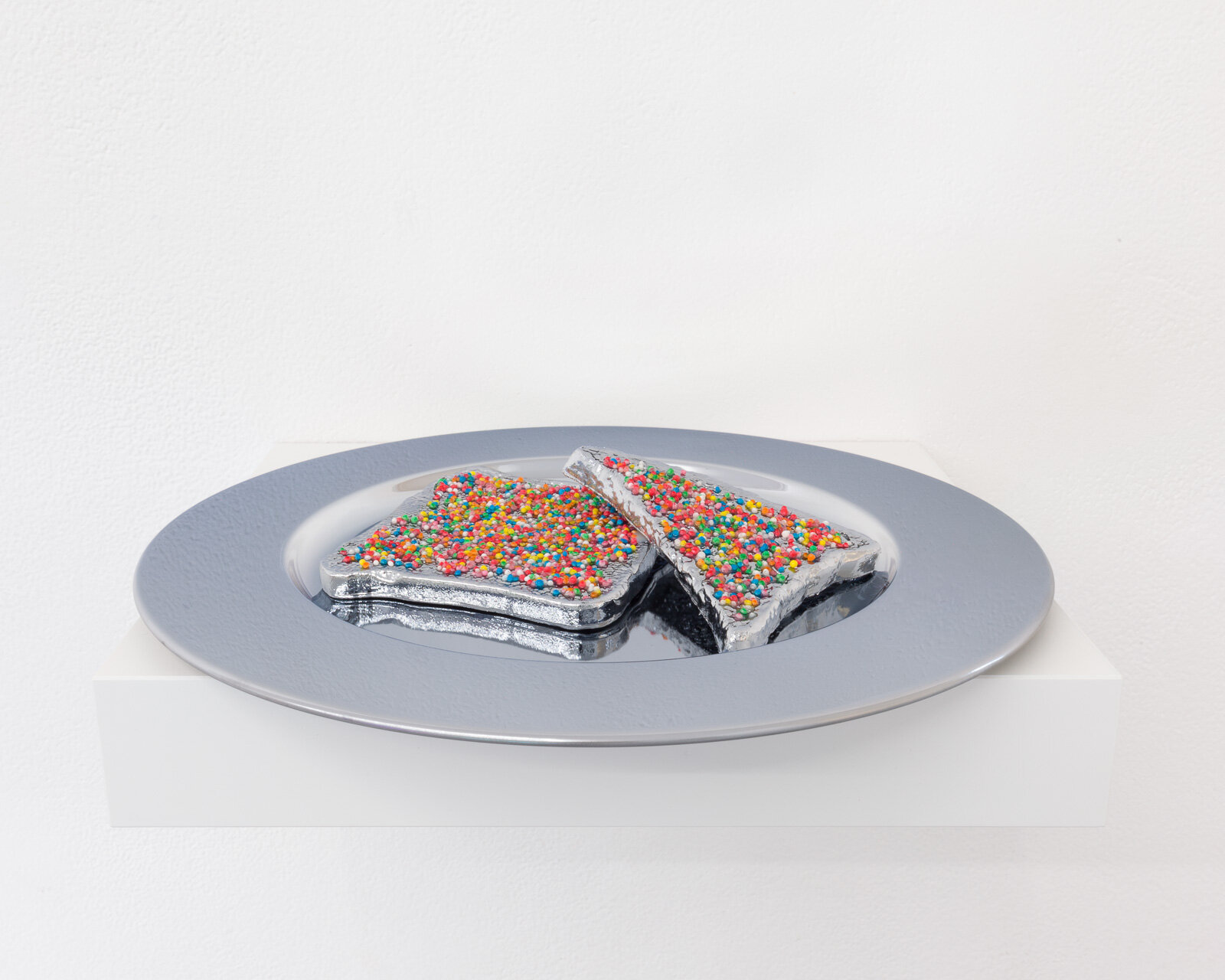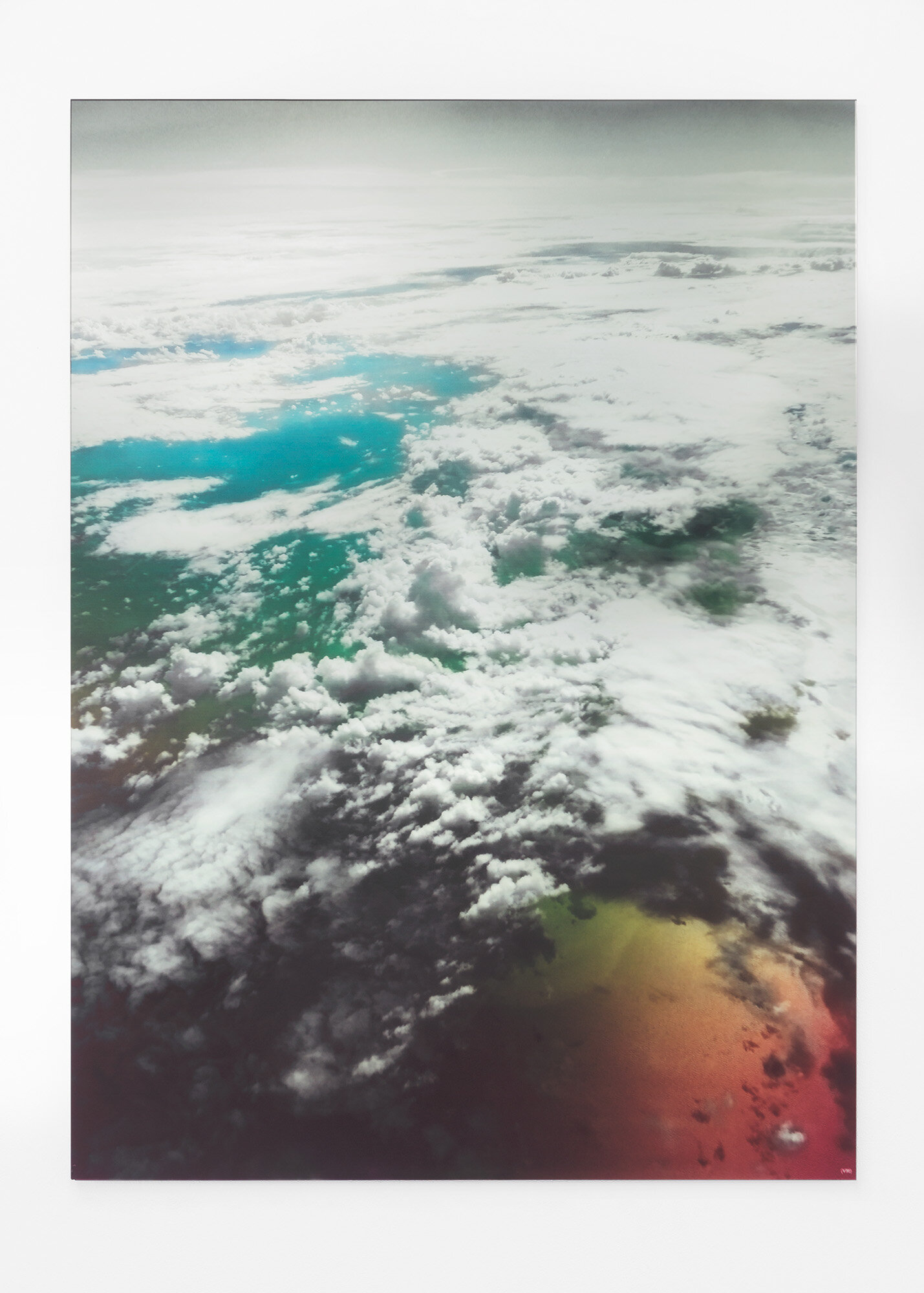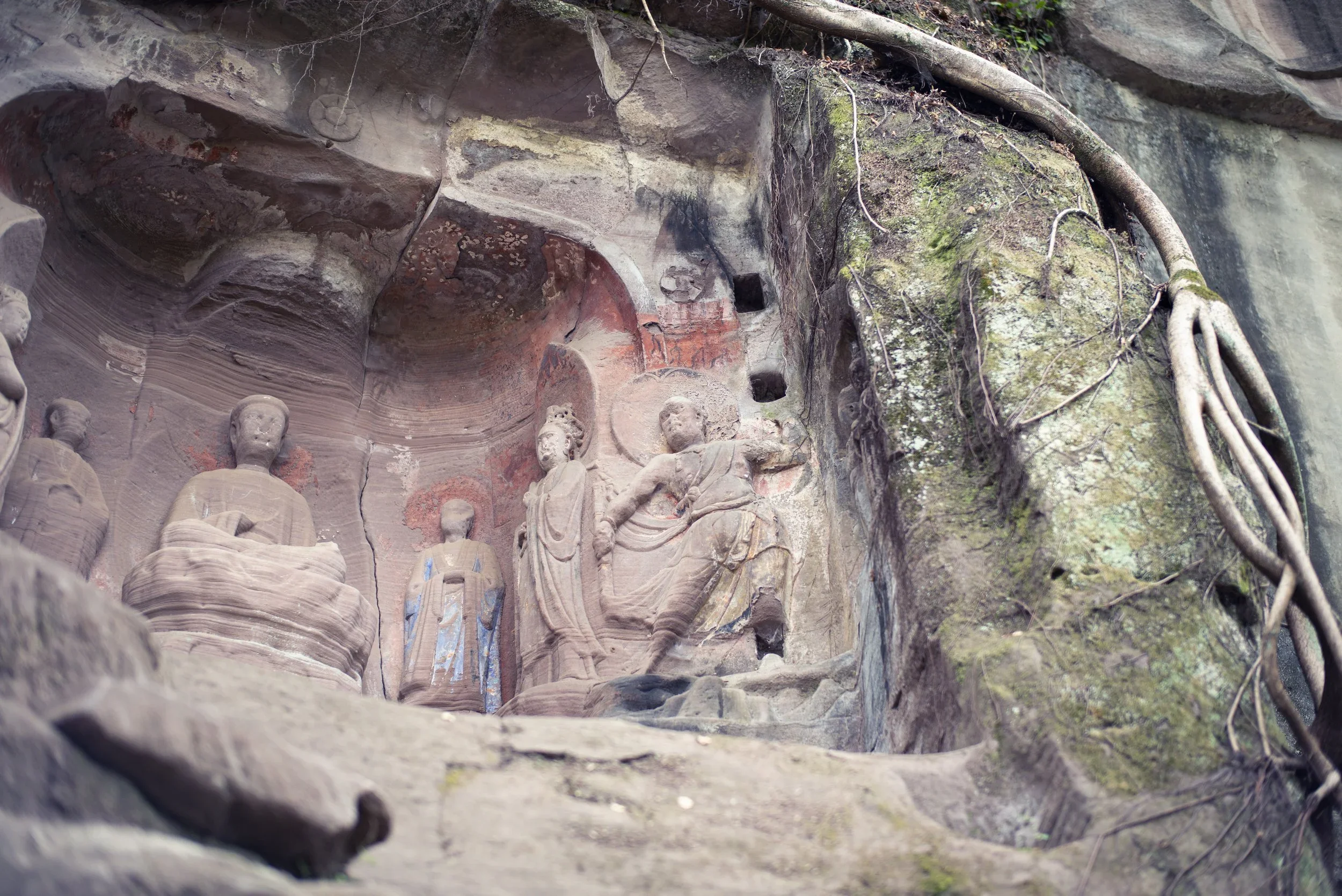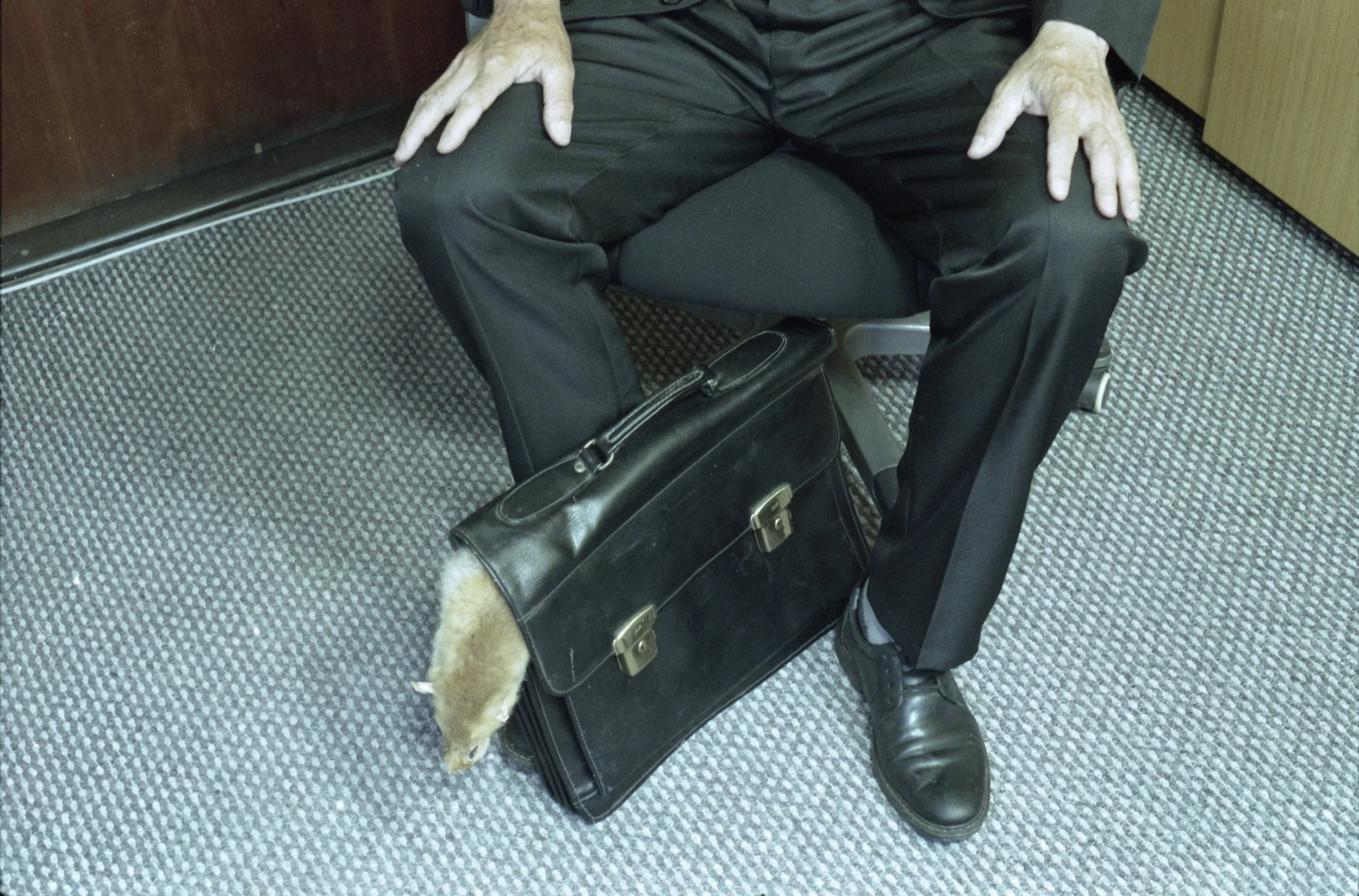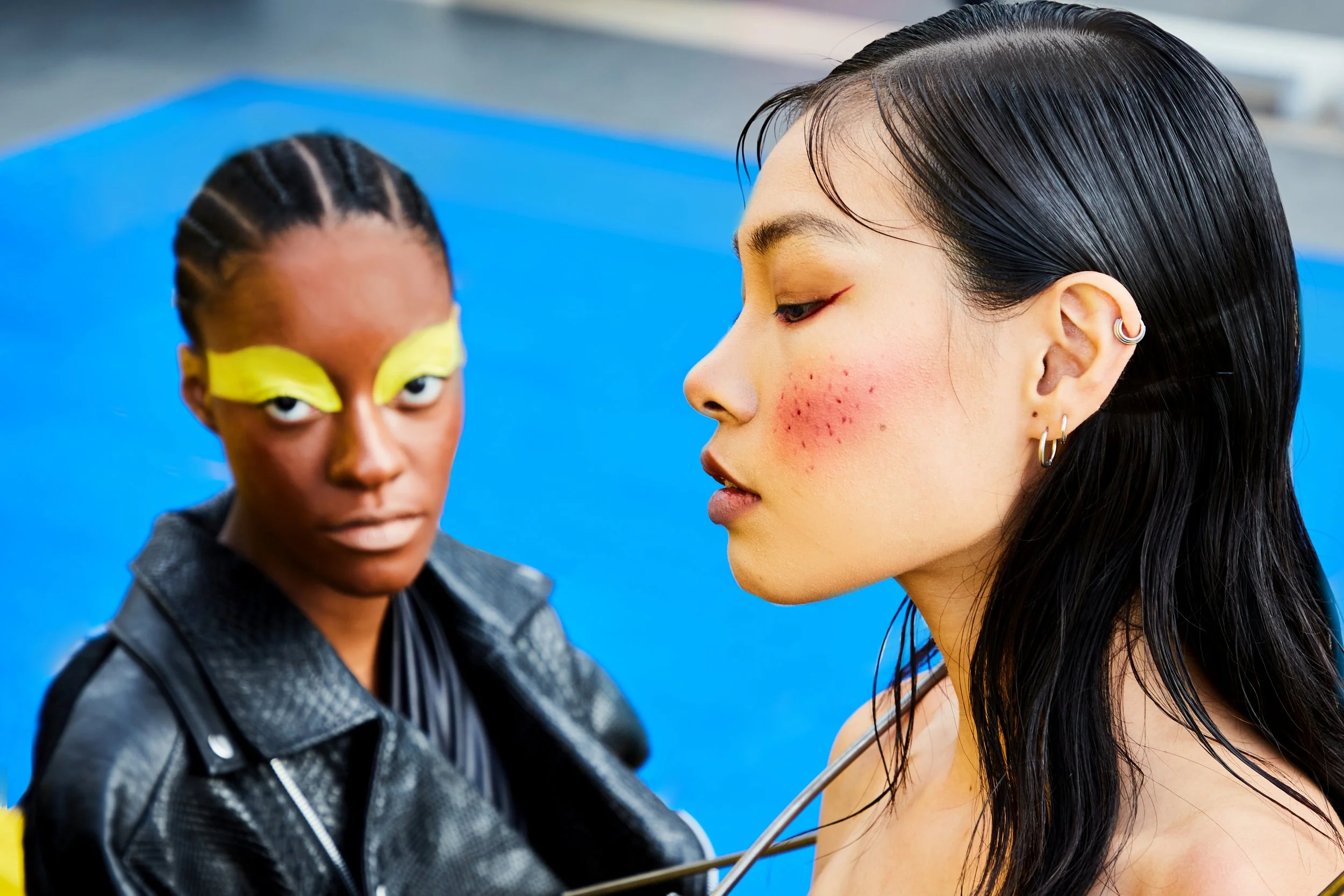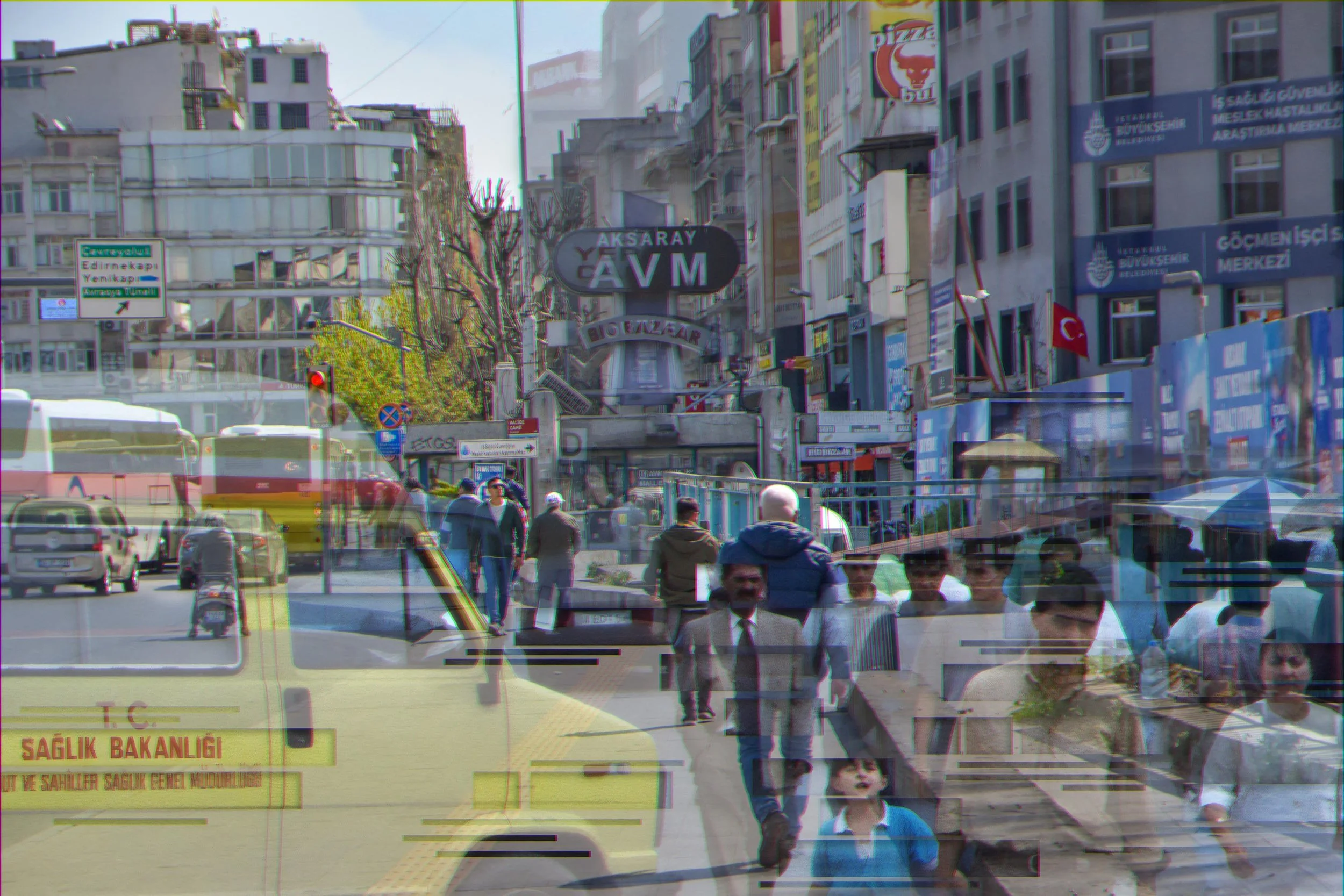9 Questions with Thomas C. Chung
Thomas C. Chung is a Melbourne and Sydney based Chinese-Australian contemporary artist devoting a lifelong conceptual practice to exploring the childlike psyche. In 2004, Chung completed his Bachelor of Fine Arts degree at the College of Fine Arts at the University of New South Wales. He is currently pursuing a future in psychotherapy for further artistic research.
Thomas C. Chung©
His artistic practice is about seeing the world through a child's eyes, having dealt with their dreams and anxieties in previous years - food, toys, paintings, drawings, and art installations being the mediums that he has used. At its deepest level, Thomas C. Chung is researching the childlike psyche as a way of understanding the world as an empath.
His solo exhibitions carry on like a chapter in a book. From one to the next, so as the world changes before them, so do his materials. This lifelong narrative is a conceptual fusion mediating his interests in psychology, philosophy, and contemporary aesthetics.
Utilizing aerial photography, "From Up Above…So It Is" is a vast series of cloudscapes printed upon mirrors. The compositions are in a free-fall state, drifting in the sky, passing through a prism of color, and peering into the sea and occupying a space between disturbance and the aftermath, rift temporary a rainbow formed by the dispersion of light—a moment between moments. Sitting on a chiseled stone bed is a text-based installation created in neon—the twisted sentence spelling out the title of the show. Contrasting elements of dense, dark stone sourced from a cemetery, electrified glass's fluorescence is a play on weight and tone, content, and tension.
Displayed upon a shelf is a batch of fairy bread – a favored treat from childhood – in two different forms; a whole slice and a half slice. "You Said It Wasn't Possible" are metallurgical sculptures made from a base of melted plastic toy aeroplanes, plated in electromagnetic chrome, and covered in resin-preserved sprinkles. It is layered as if to safeguard its future.
“…It Was Like Seeing A Fallen Rainbow“ Thomas C. Chung©
His career has included numerous international residencies, representing Australia at more than six international biennials. He was also commissioned as the only Australian artist to create a 25th-anniversary sculpture for Swatch.
In the last several years, he was invited to participate in the 2nd Land Art Biennial in Mongolia, 4th Ghetto Biennale in Haiti, 9th Shiryaevo Biennale in Russia, 1st Karachi Biennale in Pakistan, and The APS Mdina Cathedral Contemporary Art Biennale in Malta. This year he was accepted for his second consecutive biennial in Mdina, Malta. His recent exhibitions have included The 40th Alice Prize, Araluen Arts Centre, Australia; The 65th Blake Prize, Casula Powerhouse Arts Centre, Australia; Korea Through The Lens, Ministry of Foreign Affairs, South Korea; Central Russian Zen, National Centre for Contemporary Arts, Russia; YIA Art Fair #10, Basel Art Center, Switzerland.
Chung's past decade has seen him being awarded selected residencies to Kemijärvi (Finland), Gothenburg (Sweden), Amsterdam (Netherlands), Shanghai (China), Zürich (Switzerland), Kuala Lumpur (Malaysia), Hohenstein (Germany), Chiang Mai (Thailand) and Sapporo (Japan). His work is included in public collections of The Swatch Group (Biel, Switzerland); Swatch Art Peace Hotel (Shanghai, China), National Centre for Contemporary Arts (Moscow, Russia); Sofia Arsenal Museum for Contemporary Art (Sofia, Bulgaria); Mongolian National Modern Art Gallery (Ulaanbaatar, Mongolia); and Ministry of Foreign Affairs (Seoul, South Korea), as well as various private collections in Australia and internationally.
Interviewed by Mohamed Benhadj.
“…It Was Like Seeing A Fallen Rainbow“ Thomas C. Chung©
How would you define yourself as an artist?
I'm a contemporary artist interested in exploring the childlike psyche. My conceptual practice is interested in the notions of play, memories, dreams, and how it weaves into psychology. It's essentially about how important it is to retain that inner child for us to all live happier and fulfilling lives. The journey of this is what is fascinating to me.
What kind of education or training helped you develop your skillset?
I studied a Bachelor of Fine Arts degree in Sydney at the University of New South Wales and started as a painter. After graduating, I took some time away from creating and started working in the culinary world, first as a professional taste-tester, then moving up to become a full-time chef before leaving it behind. This taught me to see things differently and uncovered my attention to detail in a surprisingly interesting way.
Since then, I've been educated in public art history, history of curating, and psychotherapy. My practice has now become a reversal of previous processes, spending much of my time thinking before creating, and moving towards a more reflective approach.
Thomas C. Chung©
Thomas C. Chung©
Thomas C. Chung©
Thomas C. Chung©
Where do you find inspiration?
Inspiration is wherever my mind is. And mostly I find the most interesting things to be the same as when I was a child. Seeing, touching, understanding, thinking (& overthinking), falling in love, reducing it back to its most basic state… I use this to create some kind of artwork.
Art was the most accessible occupation I could have dabbled with. I always felt too free inside to want to sit still. At some stage in my life, I considered being a detective, marine biologist, astronomer, volcanologist, archaeologist, children's author, lighthouse keeper, chef, and psychologist (I was interested in a lot of things!)…but I wouldn't say I liked structured learning. So, art and psychotherapy have since become my vocation as well as my inspiration.
What experience of your life would you say that is reflected in your works of art?
If there was a single experience I had to choose, then it'd be the idea of seeing life through a child's eyes. The greatest influence I can point to would be my initial discovery of The Little Prince by Antoine de Saint-Exupéry, followed by its reading and subsequent re-readings in my lifetime and my eternal search for 'My Other'.
Your project is called "…It Was Like Seeing A Fallen Rainbow"—what is the title's thinking?
I spent the first decade of my practice sifting through the ideas of childhood, living in our small worlds to understand everything that surrounds us - in the smallest of things, we built the biggest of dreams.
Thomas C. Chung©
This next decade begins with the last project you just mentioned. The idea is to investigate what happens when we leave behind our past to build upon something tangible. Moving on from our younger selves, how do we cope when we are forced to 'fall through a rainbow'?
In your work, we can find Skyview photographs, multicolored lights, candy, and toys. We also find words and phrases. These narrative elements illustrate a story to tell, just like reading a storybook. Please, tell our readers about the symbology of your work.
I had this wish to be a children's author. But it wasn't long before I realized (and I wrote to one of my favorite authors before I made this decision) that there were a lot of great creatives already in that field. It felt best to admire them from afar, rather than to embarrass myself and join them.
When I came to that conclusion, I decided my lifelong narrative would be to uncover what it meant to see the world as a childlike soul, much like my favorite book, The Little Prince. Every decade I would reinvent my studio practice to express these life stages in a continued story, where each solo show carries on from one to the next, like a giant storybook.
The objects in my art all carry a reference hinting at a sense of longing and the need to connect with the larger world. Toys, candies, cakes, food, cacti, roses, and bonsai were prominent in my older pieces and represented the search for something more, while simultaneously attaching to my relationships.
I found myself thinking very deeply about this and felt the need to know exactly what I was speaking about, as it felt so important to me. I didn't want to read a few books and call it 'my research.' That's when I understood that I needed an extensive understanding of psychotherapy, before paring it back to what I knew instinctively and emotionally as an artist. That whole idea of knowing more only to know less and less was what I had to put myself through to get to that essence of the concept.
How do you see the project evolving in the next five years?
I would like to be traveling a whole lot more working in cross-disciplinary fields, combining my art and psychotherapy to visit communities, schools, universities, and institutions to untangle everyone's experiences growing up.
Taking the time to listen, understand and share the importance of being curious. Remaining childlike is an idea to me and a singular way of being. We've often been confronted in our lives that as adults, we 'have to grow up', which in many ways is rather pragmatic and simply about survival.
What happens to us when we've earned our 'keep' in this world? Where do we go next? Is there something missing in this process?
Rediscovering our inner child allows us to remain excited and curious. It's also vital to our health. I'd like to see this shared through my particular skills as an empath (something I only discovered I was a few years ago).
Thomas C. Chung©
Thomas C. Chung©
Any shows, galleries, or publications where our readers can find your work?
The best way to find me would be through Facebook and my Website these two links. So don't be afraid to connect & say Hi.
What's the coolest art tip you've ever received?
I remember this line from one of my favorite artists, Yoshitomo Nara. He said in one of his many books, "Never forget your beginner's spirit." I've always tried to hold that close…to never stop exploring.

